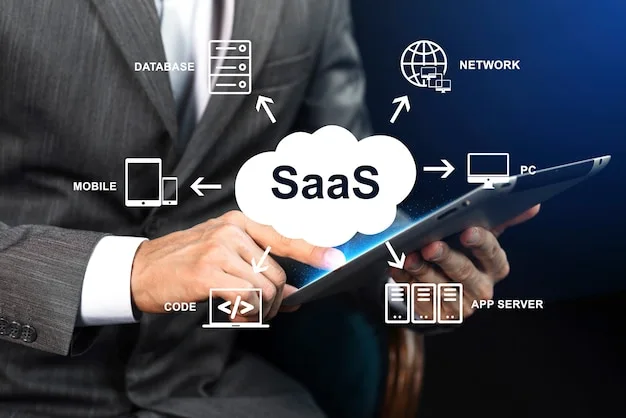Sustainable growth is the ultimate goal for any SaaS company. Without a robust strategy, even the most promising SaaS startups can struggle to thrive in a competitive landscape. At the heart of this journey is marketing. SaaS marketing experts have developed unique insights to help businesses maintain long-term growth by focusing on customer-centric strategies, product innovation, and data-driven decisions.
Understanding SaaS Marketing
What is SaaS Marketing?
SaaS (Software as a Service) marketing refers to promoting cloud-based applications to target users. Unlike traditional software, which is purchased and installed, SaaS products are subscription-based. This changes the entire marketing dynamic. SaaS companies must attract customers, engage them, and retain them for long-term success.
Unique Challenges Faced by SaaS Marketers
SaaS marketers face a unique set of challenges, such as shorter sales cycles and the need to demonstrate value consistently. Customers have endless options, so standing out is critical. Additionally, SaaS companies must focus on acquiring leads, nurturing them, and minimizing churn.
Core Principles of SaaS Marketing
Customer-Centricity as the Foundation
The most successful SaaS companies understand that customers are the key to sustainable growth. By focusing on customer needs and providing ongoing value, companies can build long-term relationships that drive success.
The Value of Recurring Revenue
Unlike one-time sales, SaaS companies rely on recurring revenue. Ensuring customer satisfaction over time becomes crucial for maintaining a steady revenue stream. SaaS marketing strategies should prioritize both acquisition and retention equally.
The Role of Data in SaaS Growth
How Data-Driven Decisions Fuel Growth
Data plays a pivotal role in modern SaaS marketing strategies. Understanding customer behavior, product usage, and market trends helps companies make informed decisions. Data-driven strategies enable better targeting and more personalized marketing efforts.
Understanding Key SaaS Metrics
Metrics such as Monthly Recurring Revenue (MRR), Customer Acquisition Cost (CAC), and Customer Lifetime Value (CLTV) are essential for evaluating SaaS growth. These key performance indicators (KPIs) allow marketers to track progress and optimize their campaigns effectively.
Customer Retention Strategies
Importance of Customer Retention in SaaS
Acquiring new customers is costly, but retaining them is key to long-term success. Retaining customers increases lifetime value and contributes significantly to sustainable growth.
Proven Retention Tactics by SaaS Experts
From onboarding programs to personalized customer support, SaaS companies can use multiple strategies to enhance retention. Regular engagement, product updates, and loyalty programs all play a role in keeping customers satisfied and coming back for more.
Lead Generation Techniques
Effective Lead Generation Strategies
Generating quality leads is vital for growing a SaaS business. By using a mix of inbound marketing tactics like SEO, content marketing, and paid ads, companies can attract the right prospects. Additionally, offering free trials or demos gives potential customers a taste of the product.
Leveraging Inbound Marketing for SaaS
Inbound marketing is particularly effective for SaaS. By creating valuable content that solves customer pain points, SaaS companies can attract, educate, and convert leads. This creates a more natural, customer-driven growth model.
The Power of Content Marketing
How Content Drives SaaS Growth
Content marketing plays an indispensable role in SaaS growth. Whether through blogs, case studies, or webinars, valuable content educates customers, builds trust, and positions the company as an industry leader. High-quality content also boosts SEO efforts.
Best Content Types for SaaS
Not all content types work equally well in SaaS marketing. Some of the most effective include product tutorials, how-to guides, industry whitepapers, and customer success stories. These types of content help prospects see the value in a SaaS solution.
Leveraging Product-Led Growth (PLG)
Understanding PLG in the SaaS Context
Product-led growth (PLG) is a strategy where the product itself becomes the main driver of customer acquisition, retention, and expansion. By creating products that sell themselves through user experiences, SaaS companies can achieve sustainable growth without relying heavily on traditional sales models.
Benefits of PLG for Sustainable Growth
PLG strategies have numerous benefits, including lower customer acquisition costs and faster growth cycles. With more SaaS companies adopting PLG, it’s become clear that allowing customers to experience the product firsthand is a powerful marketing tool.
Role of Customer Feedback in Growth
Why Customer Feedback Matters
Customer feedback is a goldmine of information for SaaS companies. It provides insights into user satisfaction, pain points, and product improvements. Ignoring feedback can result in missed opportunities for growth.
Using Feedback for Product and Marketing Optimization
Feedback allows companies to refine their product and optimize their marketing strategies. By incorporating user suggestions and addressing concerns, SaaS businesses can ensure that their product evolves with customer needs.
SEO and SaaS Growth
Importance of SEO for SaaS Companies
Search engine optimization (SEO) is critical for SaaS companies that rely on organic traffic to generate leads. By ranking higher in search results, SaaS businesses can increase visibility, drive more website traffic, and convert leads at a lower cost.
Best SEO Practices for SaaS
SaaS marketers should focus on keyword research, high-quality content, and technical SEO. Optimizing landing pages, improving site speed, and building backlinks are essential for long-term success in SEO.
Paid Advertising in SaaS
When and How to Use Paid Ads
While inbound marketing is highly effective, paid advertising can provide a quick boost in visibility. Google Ads and social media platforms like LinkedIn offer targeted ad solutions that are ideal for SaaS companies seeking to reach decision-makers.
Best Platforms for SaaS Advertising
LinkedIn, Google, and Facebook are excellent platforms for paid SaaS advertising. Each platform offers unique targeting options that allow companies to reach their ideal audience and generate quality leads.
Social Media Strategies for SaaS
How SaaS Brands Can Leverage Social Media
Social media has become an essential channel for SaaS companies to engage with their audience. Platforms like Twitter and LinkedIn enable brands to share industry news, product updates, and thought leadership content, fostering a community around the brand.
Key Platforms for SaaS Growth
LinkedIn, Twitter, and Facebook are among the top social platforms SaaS brands use to engage with users. These platforms allow for targeted marketing efforts and provide an avenue for customer feedback and support.
Collaborating with Industry Influencers
Why Influencer Partnerships Work for SaaS
Partnering with industry influencers helps SaaS brands reach a larger audience through trusted recommendations. Influencers in tech and business can lend credibility and extend brand reach through their networks.
Choosing the Right Influencers
SaaS companies should focus on working with influencers who have a relevant audience and a reputation for thought leadership. Micro-influencers can often be more effective due to their niche audiences.
Future Trends in SaaS Marketing
Key Trends Shaping the Future of SaaS Marketing
Emerging technologies like AI, machine learning, and automation are reshaping SaaS marketing strategies. Companies that stay ahead of these trends will gain a competitive edge in the market.
How to Stay Ahead of the Competition
To stay competitive, SaaS businesses need to invest in technology, nurture customer relationships, and remain agile. Flexibility and innovation are key to long-term success in a rapidly evolving market.
Conclusion
Sustainable growth in the SaaS industry requires a well-rounded approach, blending customer-centric marketing, data-driven strategies, and innovative product development. By following the insights provided by SaaS marketing experts, companies can position themselves for long-term success.



